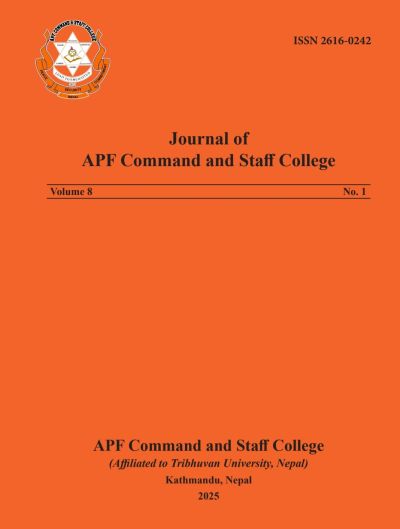Geo-economics in Nepal: Examining its Influence on Economic Resilience and Security
DOI:
https://doi.org/10.3126/japfcsc.v8i1.77599Keywords:
Geo-economics, neorealism, blockade, national economic security, rational actorAbstract
Geo-economics integrates economic policies with political and geographical strategies to achieve national objectives. This study aims to evaluate Nepal’s geo-economics dynamics compared to India, the USA, China, SAARC, East Asia and Pacific, and Europe and Central Asia regions by using independent sample t-test to compare the selected geo-economics variables like external debt, foreign direct investment, personal remittances, economic growth, and per capita income. Countries use economic tools as carrots and sticks to get others do what they want, signifying the role of geo-economics for national economic security. Based on secondary data since 1995, the analysis reveals the significant differences in Nepal’s economic performance, especially in gross fixed capital formation and economic growth, leading to increased dependency on trade and remittance inflows. The study highlights the growing external debt and its potential to limit economic freedom and undermine national sovereignty. Nepal’s weaker economic growth and current account balance are similar to India, but its per capita GDP growth lags behind neighboring economies due to historical macroeconomic challenges. The research concludes that economic strength directly influences national economic security, with international politics and geography shaping Nepal’s geo-economics sovereignty.
Downloads
Downloads
Published
How to Cite
Issue
Section
License
Copyright (c) 2025 The Author

This work is licensed under a Creative Commons Attribution 4.0 International License.




